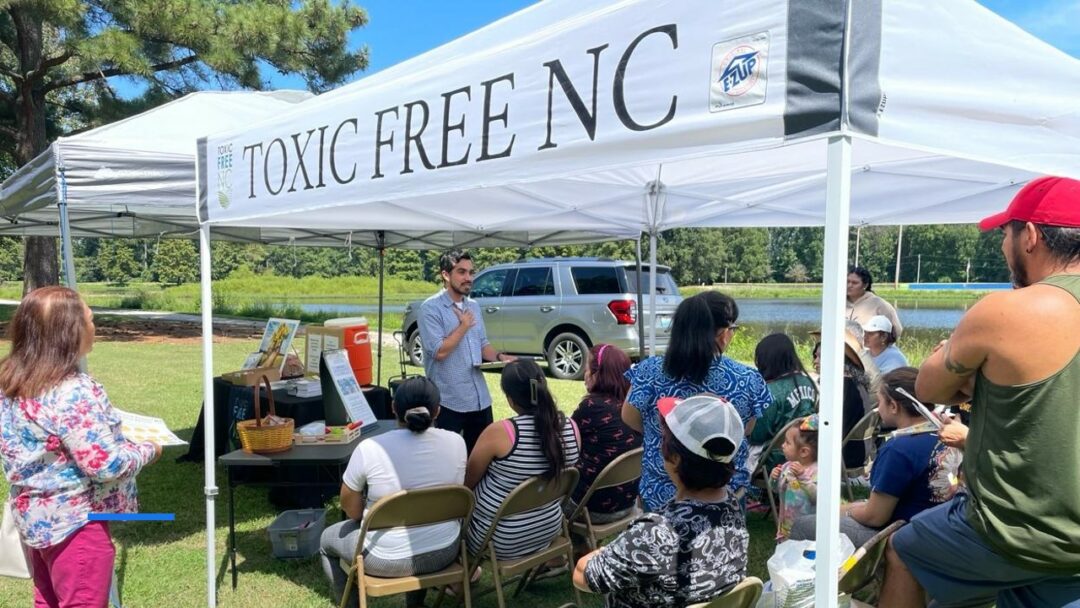Highlights
- 2,100+ farmworkers reached through workshops, community events, and other outreach
- 176 workers participated in education workshops in Spanish
- 130 growers received WPS resources at seasonal commodity events
- 120+ outreach workers and advocates trained to share WPS best practices
- Four Train-the-Trainer workshops held (two virtual, two in-person at North Carolina Farmworker Institute)
- Eight interactive WPS workshops delivered
- Statewide collaboration with partners from NC State Extension, NC FIELD, and Farmworker Advocacy Network
- Positive survey results showed marked increases in knowledge and behavioral intentions among both farmworkers and trainers
View More
View Less
Program Details
Project Goals
The project aimed to expand awareness of the Worker Protection Standard across rural North Carolina, which hosts one of the largest farmworker populations in the U.S. It focused on:
- Educating farmworkers and pesticide handlers on safe pesticide practices
- Equipping outreach organizations with tools and training to extend WPS knowledge further into agricultural communities
Farmworker Outreach
Toxic Free NC led:
- Four popular education pesticide safety workshops in Spanish
- Outreach at worker camps and community events across ten counties
- Distribution of WPS flipcharts, brochures, and materials in person and via Facebook, WhatsApp, and email
Train-the-Trainer Program
- Four WPS Train-the-Trainer workshops for advocacy and outreach staff
- 52 total registrants; 22 earned certification to deliver future trainings
- Workshop content included EPA-approved materials, practical activities, and personal storytelling
- Toolkits distributed included bilingual slides, outreach materials, and contact info for reporting violations
- Attendee quotes:
- “This training gave me some ideas of what I should emphasize more in my WPS trainings. I’m giving a training to 10 [farm]workers this afternoon, and I’ll be asking how many of them look for info at the central location.”
- “Thank you for putting this training out there. I’m always in the field talking to workers, and anyone who is talking to workers should take this course.”
Evaluation Outcomes
Survey results from pre- and post-training evaluations showed:
- Knowledge of pesticide symptoms and exposure routes increased by 30–50%
- Nearly 100% of 2024 trainees could identify pesticide entry routes and correct safety behaviors
- Real-world impact: Trainers immediately applied lessons in the field with farmworkers
View More
View Less
What Made This Project Special?
- Community-Centered Education: Materials and methods reflected the lived experiences of farmworkers - emphasizing stories, visuals, and real-world scenarios
- Variety of Industries: Toxic Free NC worked with historically underserved populations, including seasonal and migrant workers in industries like tobacco, nursery, and produce
- Grassroots Partnerships: The project brought together a powerful network of local leaders, from NC State Extension to grassroots groups like NC FIELD, Casa Azul de Wilson, and Hispanic Federation
- Relevant Tools: All training and resources were accessible in both English and Spanish, with interpretation provided in real time
View More
View Less

Stay up-to-date with our AgCBP Program
Sign up for news and updates!
